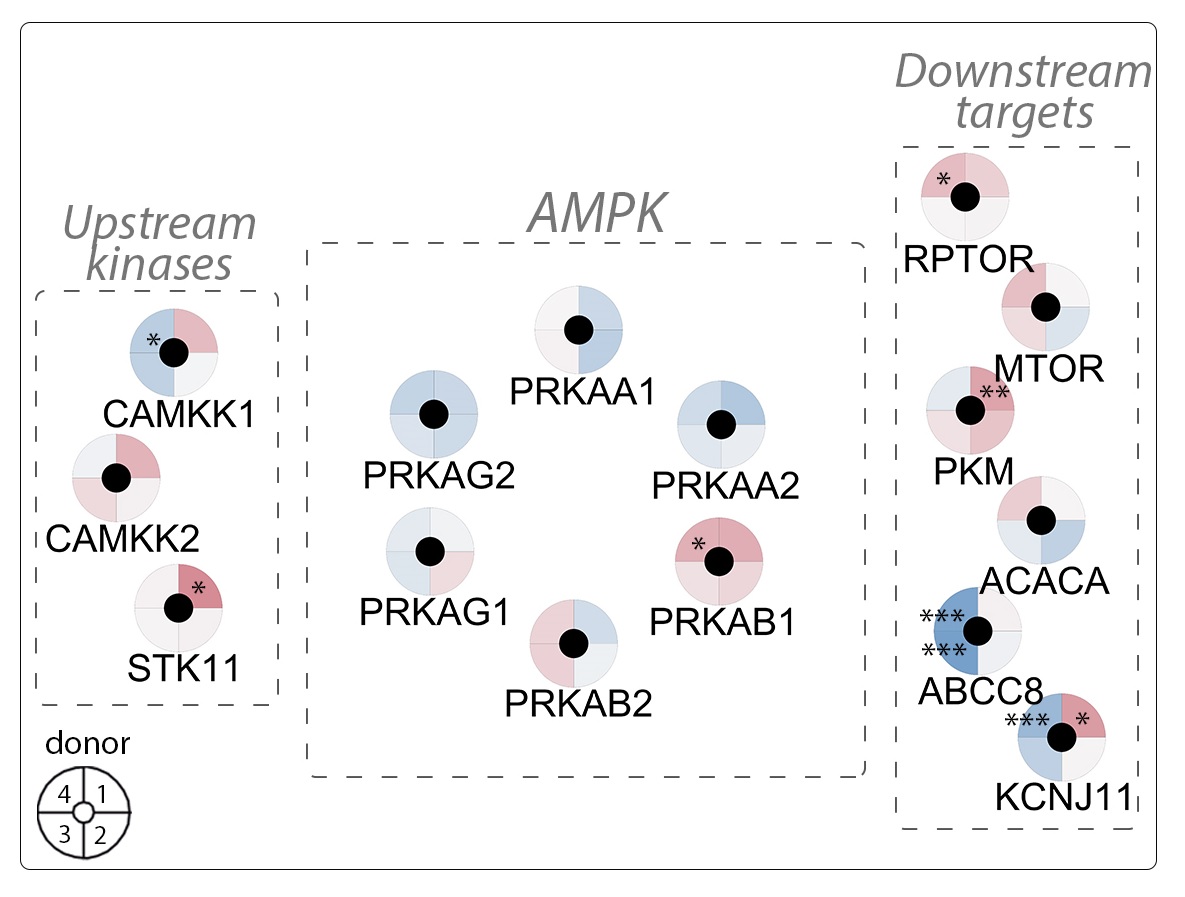Energy gauge of pancreatic beta-cells & diabetes
The AMP-activated protein kinase, AMPK for short, works a sensor of the energy state in β-cells. High energy intake provided by blood glucose deactivates AMPK but stimulates insulin secretion to store incoming nutrients. Intuitively, activation of AMPK in the β-cell should not accompany the stimulatory action of glucose on insulin secretion, the former resulting from low energy state and the latter being associated with energy-rich food. In type 2 diabetes, AMPK activators such as metformin have beneficial effects, although they should theoretically reduce insulin secretion and worsen the situation.
In their recent study published in the International Journal of Molecular Sciences, researchers of Prof. Pierre Maechler laboratory helped by researchers from Prof. Mirko Trajkovski laboratory and from the University of Southern Denmark discovered a potential explanation for this contradiction. AMPK activation might put to rest over-solicited β-cells and ameliorates diabetic state.
This collaboration between two research groups of the Department of cell physiology and metabolism allowed an in-deep analysis of AMPK gene expression under chronic exposure to different sugars and fatty acids, mimicking diabetogenic conditions. If AMPK expression was almost not modified by these different diabetogenic conditions, upstream regulators (kinases) and downstream targets of AMPK were significantly impacted as visible on the example Figure below.

AMPK expression levels in human islets under high-glucose conditions (G25). Up-regulations appear in red and down-regulation in blue. © adapted from Figure 3 in Brun et al. 2020 Journal of Molecular Sciences
22 Jun 2020